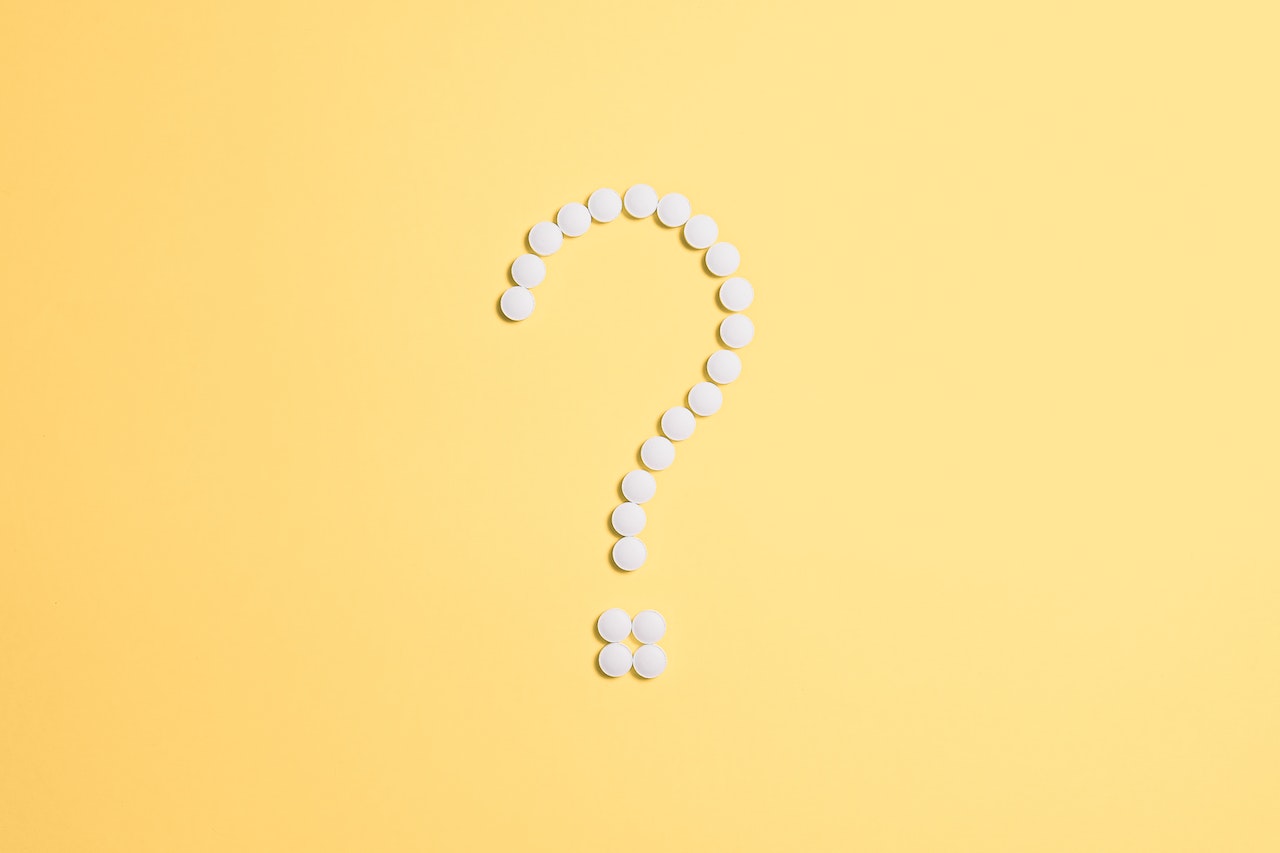Attention-deficit/hyperactivity disorder (ADHD) is most commonly talked about in the context of school or the workplace, but it affects many areas of life—including the bedroom. (And no, we’re not referring to sleep!)
Research shows that people with ADHD are more likely than neurotypicals to develop sexual dysfunction or other sexual disorders.1 On the other hand, ADHD is also linked to hypersexuality.2 So, let’s dive into all things ADHD and sexual health, shall we?
Too long; didn’t read
- Navigating the impacts ADHD can have on your sex life can be frustrating and overwhelming—especially while juggling other aspects of the neurodivergent lifestyle. (Thanks, brain!)
- ADHD can also make you a passionate and exciting lover, a deeply empathetic partner, and so many other wonderful things.
- If your libido level is of concern - whether it’s low or high - stay on top of it (pun intended) by being open and honest with partners, finding a community, downloading ADHD resources like Inflow, or finding a sex therapist you vibe with. (Pun intended. Again.)
- Ask your doctor about your ADHD medication and if it may affect sex drive and sexual health.
-
Disclaimer: we recognize and respect the asexual community, as well as those who generally do not have an interest in and/or an ability to engage in sexual activity. This is not an inherent problem, and we do not intend to communicate otherwise. Additionally, mentions of sex, hypersexuality, polyamory, sex-working, masturbation, and pornography are included to provide the full picture of ADHD and sexual health, and are not meant to shame any persons or community, nor should this content be used or cited in such manners.
How can ADHD affect your sex life?
On the physiological front, individuals with ADHD are believed to produce lower levels of dopamine — meaning they could be less “satisfied” by the standard amounts of dopamine released during sexual activity and orgasm, potentially causing them to turn elsewhere for satisfaction; for example: other partners, pornography, and increased frequency of masturbation.
ADHD symptoms include that can interfere with sexual intercourse
At the same time - if you do want to engage in sexual activity - some ADHD symptoms can make it difficult to be present and intimate with a partner. Some of these ADHD symptoms include:
- Distractibility
- Overstimulation or understimulation (which can cause sensitivity and boredom, respectively)
- Problems with time management
- Motivation-deficit
Studies show that over 50% of people with ADHD are dissatisfied with their sex life due to the sexual challenges they face.3
To be clear: this isn’t a life sentence to a bad, complicated or confusing sex life—it just means you’re not alone, and that, hopefully – after reading this article – you’ll better understand how sexuality and ADHD are connected, and how to deal with the highs and lows. Speaking of highs and lows - ADHD can cause low and high libido, depending on the individual and their symptom presentation.
🧠 Learning to be present during sex will keep you in your body, help you feel more aware and empowered to ask for and receive what you desire. - The Inflow app | ADHD & Sex module, day 1
Is ADHD adding frustration to your sex life? You're not alone. Learn more about the connection between ADHD and sexuality and how distractibility, overstimulation, and executive dysfunction can affect your sexual experiences. Your journey to a healthier and happier sex life begins here! Take our ADHD quiz to get started.
ADHD traits that can cause low libido
- Executive dysfunction can make it feel like it's 'too much effort' to initiate sex.
- Distractibility can make it hard to focus during sex.
- Mood swings can lead to a decreased desire for – and less interaction with – romantic partners.
- Understimulation is more likely to occur for ADHDers, especially if the excitement and novelty of the sex is lost.
- Overstimulation can make sensations like touch or sound during intercourse feel more intense and unpleasant.
ADHD traits that can cause high libido
- Impulsivity can lead to “risky sexual behaviors” or spontaneous sexual activity.
- Hyperfixation can cause someone to neglect other needs or important tasks because of a fixation on sex or reaching orgasm.
- Mood swings can lead to increased desire for – and more interaction with – romantic partners.
- Understimulation can increase the desire for more frequent or intense intercourse; the same principle applies to overstimulation, when heightened sensory processing is more pleasurable than bothersome.
- Addictive tendencies can cause hypersexuality, or make them prioritize sex over everything else. This is similar to hyperfixation, but more long-term or chronic.
Low libido
Bear in mind that it’s completely normal for sex drive to fluctuate over time. Your libido can be altered to a variety of things, including (but not limited to):
- Aging
- Hormonal fluctuations (pregnancy, menopause, menstruation, birth control, and hormone replacement therapy
- New medications, or a dosage change
- Grief or trauma
- Stress
- Alcohol or other substances
Signs of a low sex drive
There are a few ways to tell if you may have a low libido:
- Decreased interest in sex
- Decrease in sexual intimacy with partner(s)
- Erectile dysfunction, difficulty self-lubricating, etc.
- “Fantasizing” less than usual
- Usual 'turn-ons' are ineffective
- An interest in sex theoretically/mentally, but lacking a feeling of physical desire
ADHD + hypersexuality = a very high libido
Hypersexuality involves an excessive preoccupation with sexual thoughts, urges, or behaviors that are difficult to control. They may also cause distress, or negatively affect one’s health, job, or relationships.
How does hypersexuality relate to ADHD, specifically?
Since ADHDers have a tendency to hyperfocus—or fixate on something stimulating—they could be more likely to develop an intense interest in sexual activity.
Common hypersexual behaviors
- Risky sexual behaviors, like frequent one-night stands
- Compulsive engagement in cybersex
- Repeatedly paying for sex after deciding not to do it again
- History of cheating on partners
- Pornography addiction*
- Masturbation addiction*
- Thinking about sex most or all of the time at the expense of more important matters
- Feeling driven by impulse to these behaviors, leading to a release of tension afterwards, but - oftentimes - guilt or remorse as well
- Trying to reduce sexual fantasies, urges, or behavior to no avail
- Continuing to engage in sexual behaviors despite potential serious consequences
If you struggle with this, there’s nothing to be ashamed of. Many ADHDers experience hypersexuality, and recognizing and naming your experience can be empowering and validating.
*to the point of negatively interfering with everyday life
How to talk about your libido with your partner
Having changes in libido is very common—ADHD or not. By practicing openness and vulnerability with your romantic or sexual partner(s), you can push aside any anxieties you may have regarding your libido and sex life.
Communication and honesty are key
Explain to your partner what you’re feeling and experiencing so they can better understand and support you.
A ‘good’ partner will work with you to create a sex life that’s fruitful for the both of you.
Find a sex therapist
If you have a long-term sexual partner, it could be a good idea to seek input from a sex therapist—especially if nothing else is working, or if you struggle with one-on-one communication.
A sex therapist is trained to help people with sex-related difficulties, like those mentioned above. They will listen to your case to determine if the cause might be psychological, physical, or both. They may also assign ‘homework’ (tasks and exercises) to try alone or with your partner.
Sex therapy resources:
- Society for Sex Therapy & Research (SSTAR)
- American Association of Sexuality Educators, Counselors and Therapists (AASECT)
Find a community for support
Communities can help us feel less isolated, no matter what we may be struggling with—there's a niche community for just about everything! Safe community spaces also normalize conversations about sex and ADHD, which helps us find self-acceptance, reputable information, and practical solutions.
CHADD (Children and Adults with ADHD)
CHADD is a nonprofit organization based in the United States with a network of over 200 ADHD support groups.
If you're in the USA, find one near you by clicking here.
The Attention Deficit Disorder Association (ADDA)
The ADDA is an international nonprofit organization offering virtual support groups for adults with ADHD all over the world. Some of their groups are tailored to specific demographics, such as parents, the Black community, and queer and nonbinary ADHDers. It even has a group for neurotypical partners!
Inflow
This ADHD management app has a learning module – ADHD and Sex – for members over the age of 18, which is a great alternative for those who aren’t fond of traditional support groups. Instead of talking with strangers in an open-circle discussion, Inflow provides a private learning experience that includes dozens of optional activities and live events for members to attend.


.png)




